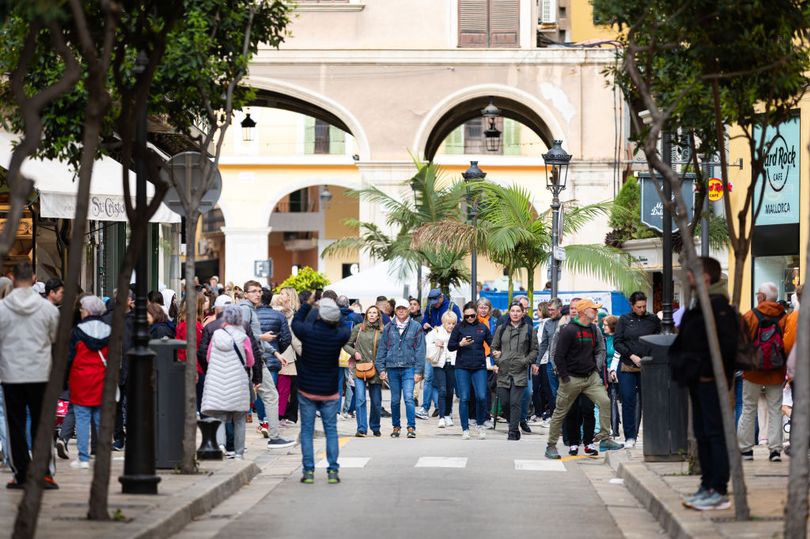The number of tourists staying on the Spanish island of Mallorca is being cut after the government decided to limit the number of beds available for tourists, with island officials saying the numbers were “endangering” the coexistence of visitors and residents.
The crackdown comes as the Balearic Islands tighten restrictions on street drinking and further tighten controls on party boats to stop drunken holidays. “It’s time to set limits and ask ourselves where we are going and what we want to become,” Marga Progens, the conservative president of the Balearic government, said this week.
Luis Apestegui, from the left-wing bloc More for Mallorca, added: “19 million tourists in a region of 1.3 million inhabitants is unacceptable. It’s not good for the region, it’s not good for the inhabitants and it’s not good for the tourists themselves. Mallorca is no longer overcrowded but suffering from a decline in tourists.”
Mallorca has announced it will cut 18,000 tourist beds on the island, 4.2% of the island’s 430,000 beds. “The time has come to impose limits,” Llorens Galmes, president of the Mallorcan Council, said at a press conference, because population growth is “putting at risk” the coexistence of tourists and residents.
The island’s tourism councillor acknowledged the season would be “complex and difficult” but said this was “a first step to minimise the impact of overcrowding”. “We cannot add any more beds,” he said.
“We’re not going to immediately solve something that we haven’t tried to solve for eight years,” he said, adding that “to be honest” the situation will be “complicated,” and the president clarified that “there will be more to come.”
There has been growing social debate over the “saturation” of tourists on the island. In recent weeks, concerns have been raised about traffic congestion in villages, which until recently were limited to July and August.
The movement against mass tourism has called for rallies in Ibiza on May 24 and Mallorca on May 25. Authorities fear protests similar to those that drew thousands of people to the streets in the Canary Islands last month, some of which have threatened hunger strikes. Ibiza has announced it will restrict vehicle access to the island to ease congestion during high season. The number of vehicles entering Ibiza has quadrupled from 51,000 in 2001 to 206,960 in 2022, with 40% of all arrivals occurring in July and August.
The Balearic government last week strengthened a law passed in 2020 to curb excessive drinking. The restrictions apply to high-drinking areas such as Playa de Palma and Magaluf in Mallorca, and Sant Antoni in Ibiza. Anyone found drinking outside of permitted areas will be fined between 500 and 1,500 euros. People will also be banned from buying alcohol in shops between 9.30pm and 8am.
The law introduces tougher rules for party boats, banning them from operating within one nautical mile (1.852 km) of designated areas. Passengers will still be banned from being embarked or disembarked.
Under the law, which came into force on Saturday, the number of sanctions imposed against foreigners will be compiled and sent to the embassies of the countries concerned.
The committee on “Promoting Civility in Tourist Destinations” will be expanded to include representatives from the countries where tourists are most concerned about the issue: Britain and Germany.


